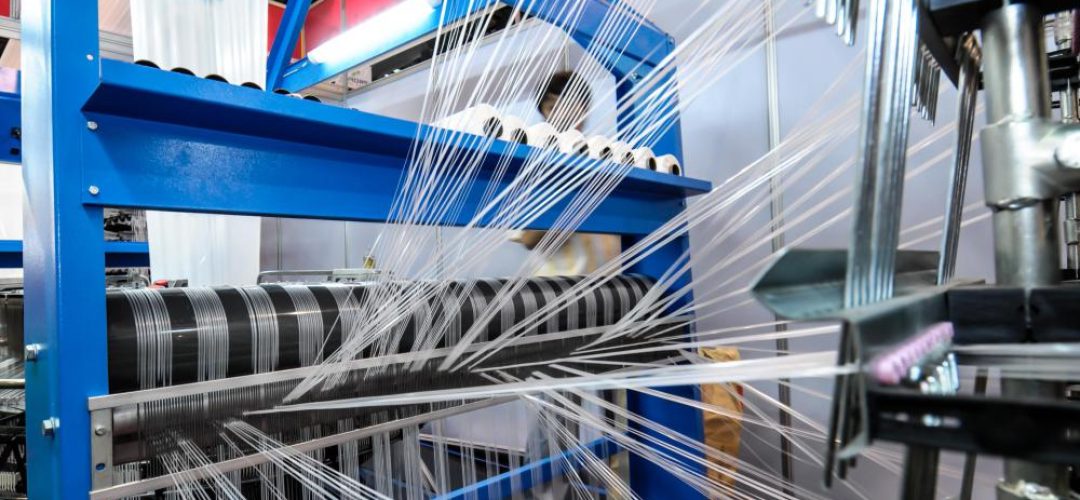Textile Engineering

The Textile Engineering course offers a comprehensive and specialized program focused on the principles and practices of textile manufacturing and technology. Students will gain a solid understanding of textile materials, fibers, yarns, and fabric production processes. The curriculum covers various aspects of textile engineering, including dyeing and printing, finishing techniques, and textile quality control. Students will also explore emerging trends in sustainable and innovative textile technologies. Through theoretical knowledge and practical laboratory work, learners will develop technical expertise in the design, development, and production of textiles for various applications. Graduates of this course will be well-equipped to pursue rewarding careers in the textile industry and contribute to advancements in textile engineering and technology.
Our Textile Engineering qualifications have been designed in collaboration with colleges, higher education institutions, and sector skills councils. They offer a pathway for individuals to progress to university degrees and cover Diploma Level- 3 to 7.
These qualifications provide the flexibility for learners to choose from a variety of optional units at each level. This allows them to specialize in specific areas while also gaining the essential core knowledge necessary for all individuals.
- Establish a strong foundation in the principles, theories, and fundamental concepts of Textile Engineering.
- Develop a comprehensive understanding of textile materials, manufacturing processes, and advanced tools used in textile research and technology.
- Proficiently apply scientific and statistical principles to analyze, design, and investigate textile systems and engineering phenomena.
- Gain practical experience in designing and conducting experiments related to textile research and engineering through hands-on laboratory work and projects.
- Explore the principles and methodologies of textile research, textile processes, and state-of-the-art instrumentation in the field of Textile Engineering.
- Acquire skills in analyzing textile data, interpreting engineering information, and contributing to the development of innovative textile products and processes.
- Study the principles of computer-aided design, textile informatics, and technological advancements relevant to the field of Textile Engineering.
- Foster critical thinking, problem-solving, and analytical skills to address complex challenges in textile engineering and technology.
- Enhance teamwork, communication, and project management abilities through collaborative research projects and assignments in the domain of Textile Engineering.
- Develop research proficiency and the capability to apply knowledge for conducting independent research in specialized areas of Textile Engineering.
Upon successful completion of the Textile Engineering program, graduates will have a diverse range of career opportunities in various industries. Potential career paths include textile engineer, materials engineer, apparel designer, quality control engineer, sustainability engineer, research and development specialist, textile process engineer, technical textiles engineer, and more.
Graduates can explore job opportunities in textile manufacturing companies, fashion and apparel industries, research and development institutions, textile machinery companies, and sustainable textiles organizations. They may also choose to pursue advanced studies at the postgraduate level or opt for careers in academia and research in the field of textile engineering.
Course Details

Level 3- National Diploma in Textile Engineering
Course Overview:
The Level 3- National Diploma in Textile Engineering is designed to provide students with a foundational understanding of the principles and practices in the field of Textile Engineering. This course aims to equip learners with essential knowledge about textile materials, manufacturing processes, and basic textile technologies. Students will gain insights into various aspects of textile engineering, including textile fibers, yarns, weaving, knitting, and finishing techniques. The curriculum emphasizes the development of technical skills and practical competencies required in the textile industry.
Equivalences:
The Level 3- National Diploma in Textile Engineering is equivalent to an A-Level qualification in the UK, signifying a standard of learning appropriate for entry into higher education or direct employment in the textile sector.
Course Contents:
The course content of the Level 3- National Diploma in Textile Engineering typically covers a range of advanced topics. Here are the topics covered:
- Introduction to Textile Materials
- Textile Fiber Technology
- Yarn Production and Characteristics
- Principles of Weaving and Knitting
- Textile Printing and Dyeing
- Textile Finishing Techniques
- Quality Control in Textile Manufacturing
- Textile Machinery and Technology
Assignment Criteria:
The qualification assessment criteria are based on assignments, but in order to pass, the learner must complete all of the unit’s learning requirements. At the completion of each unit, an interview will be held as proof that the work truly belongs to the learner.
Entry Requirements:
The specific entry requirements for the Level 3- National Diploma in Textile Engineering may include:
- A minimum age requirement (e.g., 16 years old).
- Completion of O-level/ 10th Standard or equivalent qualifications.
- Completion of a relevant Level 2 qualification in Textile Engineering or a related subject.
- A passion for textiles and an interest in pursuing a career in the textile engineering field. No prior experience in textile engineering is necessary as this course offers foundational knowledge.
- Proficiency in English language (e.g., a minimum level of English language qualification).
Course Duration:
The qualification has recommended course duration of 1 year.
Note: However the course duration may be increased to meet additional learning needs if required.
Level 4- Extended Diploma in Textile Engineering
Course Overview:
The Level 4- Extended Diploma in Textile Engineering is a comprehensive program that builds upon the foundational knowledge acquired in Level 3. This course aims to further develop students’ expertise in textile engineering principles and practices. It delves deeper into advanced textile technologies, sustainable textile production methods, and quality control processes. Students will gain a deeper understanding of textile machinery, process optimization, and textile product development. The curriculum focuses on enhancing technical skills and critical thinking to prepare learners for higher-level roles in the textile industry.
Equivalences:
The Level 4- Extended Diploma in Textile Engineering is equivalent to the first year of a bachelor’s degree program in the UK. It represents a higher level of academic and technical proficiency in textile engineering.
Course Contents:
The course content of the Level 4- Extended Diploma in Textile Engineering typically covers a range of advanced topics. Here are the topics covered:
- Advanced Textile Materials and Innovations
- Textile Process Optimization
- Sustainable Textile Engineering
- Textile Machinery and Automation
- Textile Product Development and Design
- Advanced Weaving and Knitting Techniques
- Textile Quality Assurance and Testing
- Textile Chemical Processing
- Textile Research and Innovation
- Textile Engineering Project
Assignment Criteria:
The qualification assessment criteria are based on assignments, but in order to pass, the learner must complete all of the unit’s learning requirements. At the completion of each unit, an interview will be held as proof that the work truly belongs to the learner.
Entry Requirements:
The specific entry requirements for the Level 4- Extended Diploma in Textile Engineering are included:
- Minimum age requirements (usually 18 years or older).
- Completion of A-level/ 12th Standard or equivalent qualifications.
- Completion of a Level 3 qualification in Textile Engineering or a related field may be required by some institutions.
- A genuine interest in pursuing a career in textile engineering and a commitment to further academic and technical development in the field.
- Applicants should possess a strong passion for innovation, sustainability, and problem-solving in the context of textile engineering.
- English language proficiency, demonstrated through language tests or previous education in an English-speaking environment.
Course Duration:
The qualification has recommended course duration of 1 year.
Note: However the course duration may be increased to meet additional learning needs if required.
Level 5- Higher National Diploma in Textile Engineering
Course Overview:
The Level 5- Higher National Diploma in Textile Engineering is an advanced program that builds upon the knowledge and skills acquired in the earlier levels. This course aims to provide students with an in-depth understanding of specialized areas within textile engineering and prepare them for senior roles in the industry. It covers advanced topics such as textile manufacturing processes, textile chemistry, textile nanotechnology, and sustainable textile innovations. Students will explore cutting-edge research and technologies shaping the textile sector and develop advanced problem-solving and managerial skills.
Equivalences:
The Level 5- Higher National Diploma in Textile Engineering is equivalent to the second year of a bachelor’s degree program in the UK. It represents a higher level of academic and technical expertise in textile engineering.
Course Contents:
The course content of the Level 5- Higher National Diploma in Textile Engineering typically covers a range of advanced topics. Here are the topics covered:
- Advanced Textile Manufacturing Techniques
- Textile Chemistry and Dyeing Technology
- Textile Nanotechnology and Smart Fabrics
- Textile Quality Management Systems
- Sustainable Textile Innovations and Circular Economy
- Textile Composite Materials and Applications
- Textile Process Automation and Industry 4.0
- Technical Textiles and Performance Materials
- Textile Supply Chain Management
- Research Methods in Textile Engineering
Assignment Criteria:
The qualification assessment criteria are based on assignments, but in order to pass, the learner must complete all of the unit’s learning requirements. At the completion of each unit, an interview will be held as proof that the work truly belongs to the learner.
Entry Requirements:
The specific entry requirements for the Level 5– Higher National Diploma in Textile Engineering may include:
- Minimum age requirements (usually 18 years or older).
- A year 1 of bachelor’s degree, A Level 4 Diploma or equivalent qualification in Textile Engineering or a related field.
- Demonstrated passion for continuous learning and staying updated with advancements in textile engineering.
- Aspiring textile engineers should possess strong leadership qualities and the ability to work in interdisciplinary teams to drive innovation in the field.
- English language proficiency, demonstrated through language tests or previous education in an English-speaking environment.
Course Duration:
The qualification has recommended course duration of 18 Months.
Note: However the course duration may be increased to meet additional learning needs if required.
Level 6- International Diploma in Textile Engineering
Course Overview:
The Level 6- International Diploma in Textile Engineering is an advanced and specialized program designed to enhance students’ expertise in textile engineering to an advanced level. This course aims to equip learners with advanced technical knowledge and managerial skills required to lead and innovate in the textile industry. It covers a wide range of topics, including advanced textile processing techniques, sustainable textiles, textile composites, and textile product development. Students will engage in research projects and industry placements to gain practical experience and prepare for senior roles in the textile sector.
Equivalences:
The Level 6- International Diploma in Textile Engineering is equivalent to the final year of a bachelor’s degree program in the UK. It represents a high level of academic and technical proficiency in textile engineering.
Course Contents:
The course content of the Level 6- International Diploma in Textile Engineering typically covers a range of advanced topics. Here are the topics covered:
- Advanced Textile Processing and Finishing
- Sustainable Textile Manufacturing and Eco-Design
- Textile Composites and Performance Materials
- Textile Engineering for Biomedical Applications
- Textile Testing and Quality Assurance
- Textile Supply Chain Optimization
- Smart Textiles and Wearable Technologies
- Textile Business Management and Entrepreneurship
- Textile Research and Innovation Projects
- Textile Industry Placement
- Textile Engineering Ethics and Sustainability
- Emerging Trends in Textile Engineering
Assignment Criteria:
The qualification assessment criteria are based on assignments, but in order to pass, the learner must complete all of the unit’s learning requirements. At the completion of each unit, an interview will be held as proof that the work truly belongs to the learner.
Entry Requirements:
The course content of the Level 6- International Diploma in Textile Engineering typically may include:
- Minimum age requirements (usually 20 years or older).
- A year 2 of bachelor’s degree, A Level 5 Diploma or equivalent qualification in Textile Engineering or a related field.
- Strong academic and practical background in textile engineering, demonstrated through previous qualifications and industry experience.
- Aspiring textile engineers should possess strong leadership qualities, the ability to drive change, and a commitment to sustainable and innovative practices in textile engineering.
- English language proficiency, demonstrated through language tests or previous education in an English-speaking environment.
Course Duration:
The qualification has recommended course duration of 18 Months.
Note: However the course duration may be increased to meet additional learning needs if required.
Level 7- Post Graduate Diploma in Textile Engineering
Course Overview:
The Level 7- Post Graduate Diploma in Textile Engineering is an advanced and specialized program aimed at developing industry-leading professionals in the field of textile engineering. This course focuses on honing students’ expertise in textile research, technology, and innovation to an advanced level. It covers a wide range of topics, including textile nanotechnology, sustainable textile innovations, advanced textile materials, and cutting-edge textile manufacturing processes. Students will engage in research projects, industry collaborations, and practical applications to further enhance their knowledge and skills in textile engineering.
Equivalences:
The Level 7- Post Graduate Diploma in Textile Engineering is equivalent to a postgraduate diploma or master’s degree in the UK. It represents a high level of academic and technical expertise in textile engineering, preparing graduates for leadership roles and research positions in the industry.
Course Contents:
The course content of the Level 7- Post Graduate Diploma in Textile Engineering typically covers a range of advanced topics. Here are the topics covered:
- Textile Nanotechnology and Nanomaterials
- Advanced Textile Surface Engineering
- Sustainable Textile Manufacturing and Circular Economy
- Advanced Textile Materials and Composites
- Textile Biotechnology and Biomaterials
- Advanced Textile Printing and Dyeing Techniques
- Textile Process Optimization and Industry 4.0
- Textile Supply Chain Management and Logistics
- Smart Textiles and Wearable Technologies
- Textile Research and Innovation Projects
- Textile Industry Internship or Placements
- Textile Engineering Leadership and Management
- Intellectual Property and Technology Transfer in Textile Engineering
- Textile Engineering Ethics and Sustainability
- Thesis
Assignment Criteria:
The qualification assessment criteria are based on assignments, but in order to pass, the learner must complete all of the unit’s learning requirements. At the completion of each unit, an interview will be held as proof that the work truly belongs to the learner.
Entry Requirements:
The specific entry requirements for the Level 7- Post Graduate Diploma in Textile Engineering may include:
- A minimum age requirement (e.g., 22 years old)
- A complete Bachelor’s degree, UK level 6 diploma in Textile Engineering or an equivalent overseas qualification.
- Demonstrated academic excellence and practical experience in textile engineering or a related field.
- Aspiring textile engineering professionals should possess strong leadership qualities, a passion for innovation, and a commitment to driving advancements in textile technology and sustainable practices.
- English language proficiency, demonstrated through language tests or previous education in an English-speaking environment.
Course Duration:
The qualification has recommended course duration of 2 years.
Note: However the course duration may be increased to meet additional learning needs if required.

